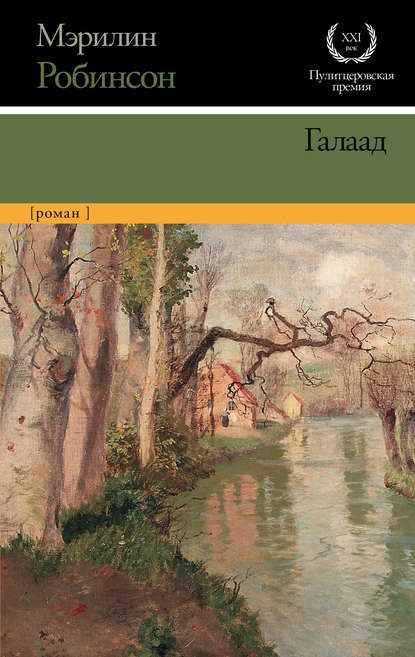Maht 290 lehekülge
2004 aasta
16+
Raamatust
На склоне лет священник Джон Эймс рассказывает историю рода, охватившую весь девятнадцатый и половину двадцатого века, своему семилетнему сыну – ребенку, который стоит у дверей в новый мир. Эймс понимает, что не увидит его взросления и не сможет поддержать, когда судьба начнет посылать ему испытания, но вера в то, что главное в этой жизни всегда неизменно, служит поддержкой ему самому. И с этой верой он пишет к сыну и рассказывает ему историю стойкости, любви и надежды, призванную дать мудрый совет, уберечь – и пожелать доброго пути.
Ülevaated, 2 ülevaadet2
Я очень люблю такие книги- книги повествования, книги раздумья, книги о судьбах людей, и даже о судьбах целой семьи. Пусть это повествование из уст пожилого человека, но действие развивается и увлекает за собой.
Ощущение, что заперли в квартире с дедом. Сначала хочется сбежать от заплесневевших историй о мире, в который особо-то не веришь. Но когда понимаешь, что родители приедут только послезавтра и других вариантов нет, то миришься с неизбежностью седых бровей, густо закрывающих путь к свободе.
А в последний день, когда между поколениями рассказчика и невольного слушателя образуется если не связь, то хотя бы привязанность, ты наконец даришь деду свое время. Потому что своего у старика не осталось.
И стоишь такой в коридоре, родители сигналят под окном. Спешат на работу, а что ты два дня назад спешил сдыхаться от деда – им плевать. И с одной стороны, ты рад. Пытка старостью окончена. С другой стороны – злишься, родители – бессовестные сволочи, ради своего комфорта пожертвовали днями твоей жизни. С третьей – не так уж и плохо было с дедом.
Для тебя два дня обрыдлой скуки, а дед в своих историях пережил заново всю жизнь. Но вырываешься на свободу все равно радостный. И с уверенностью, что ты внуков историями мучить не будешь. Но мы-то знаем...
But I’ve developed a great reputation for wisdom by ordering more books than I ever had time to read, and reading more books, by far, than I learned anything useful from, except, of course, that some very tedious gentlemen have written books. This is not a new insight, but the truth of it is something you have to experience to fully grasp.
It was to the effect that you can assert the existence of something;—Being — having not the slightest notion of what it is. Then God is at a greater remove altogether if God is the Author of Existence, what can it mean to say God exists? There’s a problem in vocabulary. He would have to have had a character before existence which the poverty of our understanding can only call existence. That is clearly a source of confusion. Another term would be needed to describe a state or quality of which we can have no experience whatever, to which existence as we know it can bear only the slightest likeness or affinity. So creating proofs from experience of any sort is like building a ladder to the moon. It seems that it should be possible, until you stop to consider the nature of the problem.
So my advice is this — don’t look for proofs. Don’t bother with them at all. They are never sufficient to the question, and they’re always a little impertinent, I think, because they claim for God a place within our conceptual grasp. And they will likely sound wrong to you even if you convince someone else with them. That is very unsettling over the long term. “Let your works so shine before men,” etc. It was Coleridge who said Christianity is a life, not a doctrine, words to that effect. I’m not saying never doubt or question. The Lord gave you a mind so that you would make honest use of it. I’m saying you must be sure that the doubts and questions are your own, not, so to speak, the mustache and walking stick that happen to be the fashion of any particular moment.
There are two insidious notions, from the point of view of Christianity in the modern world. (No doubt there are more than two, but the others will have to wait.) One is that religion and religious experience are illusions of some sort (Feuerbach, Freud, etc.), and the other is that religion itself is real, but your belief that you participate in it is an illusion. I think the second of these is the more insidious, because it is religious experience above all that authenticates religion, for the purposes of the individual believer.
Calvin says somewhere that each of us is an actor on a stage and God is the audience. That metaphor has always interested me, because it makes us artists of our behavior, and the reaction of God to us might be thought of as aesthetic rather than morally judgmental in the ordinary sense.
These days there are so many people who think loyalty to religion is benighted, if it is not worse than benighted. I am aware of that, and I know the charges that can be brought against the churches are powerful. And I know, too, that my own experience of the church has been, in many senses, sheltered and parochial. In every sense, unless it really is a universal and transcendent life, unless the bread is the bread and the cup is the cup everywhere, in all circumstances, and it is a time with the Lord in Gethsemane that comes for everyone, as I deeply believe.


